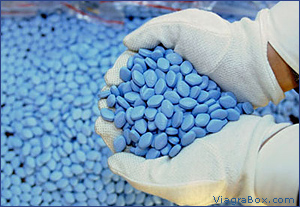Challenges in pediatric science
BY ZEMENE YOHANNES The Ethiopian Herald March,1,2013
“It’s a 'riddle' that has frustrated pediatricians for decades,” wrote one of the science journalists while investigating the least known and the hidden reality about child medicine. When children are ill and need curing drugs, it would not be easy for physicians to order drugs as few medicines are approved globally for use. Handfuls of recent studies including a report by the US government health institute are convinced the fact that most doctors are forced to prescribe drugs for children without adequate data, risking the children for overdose with a high possibility to leave its long term side effects.
“The
adage that a child is not just a small adult is true: you can’t simply
scale-down a dose of a drug from adults and expect it to behave identically in
a small child,” says Peter Adamson, a pediatrician and pharmacologist at
Children’s Hospital of Philadelphia. A study conducted in USA
also revealed the seizure drug Gabapentin (commonly known as neurontin)
requires higher than expected doses for children younger than five. To the
contrary, this medicine can make them
aggressive and hyperactive. Pain relievers, antibiotics and asthma medications,
among other drugs, are often prescribed off label, the practice of prescribing
pharmaceuticals for an unapproved indication. One can imagine the outcome of
such side effects that might be uncurable even by pediatricians themselves.
Drug
prescribing practice in the pediatrics ward is one of the many problems that
still need serious attention. According to a
study published in International
Research Journal of Pharmacy and Pharmacology pertaining to the case of Ethiopia with a reference
to Jimma University, School of health pediatrics ward , Vol. 2(6) pp. 132-138, June 2012, by
Agalu and Mekonnen, the problem in discussion is a growing concern in
the nation.
According
to the study, the data have shown as
many drugs were prescribed without full information about the usage and
dosage of the medicines, most of the drugs prescribed were not also from
the essential drug list of Ethiopia, some drugs had been found given without
indicating the dose, improper doses were found given too. This would be a good
example on how the practice of
pediatrics in our country is facing multiflorous challenges.
The writer's of this piece recent
observations over scientific journals and local hospitals proved him the level
of the problem with respect to the skills of our pediatricians. A mother whose
child was ill -whom he found her at one clinic- could not get the right cure at
one higher clinic in Addis Ababa, and she was made to see another clinic, for
instance. Most amazingly, the dose of the drug she was given had been said
improper by the second doctor she saw.
This lead everyone to ask how kids are treated in the third world
particularly, in Ethiopia. Basically in our country medical science is at its young age, but our
doctors application is almost similar for adult and children. Not only that, they also prescribe the disapproved ones.
It is evident that our country has the least
number of hospitals and doctors in Africa. Information pertaining to the number of
pediatricians we have is also hard to come by. Since most Ethiopians have no
clear understanding as to the difference exists among pediatrician and medical
doctor, we could not even make the right choice of clinics to take our
kids while they are sick. It is
undisputed that getting treatment by
pediatrician would bring the
desired result in children's health than simply doing it by medical doctor.
Finding the right specialist in
medication is another headache which needs more attention. As mistreatment is a
major problem in our country, many people suffer from additional diagnosis
mistakes made by doctors. The same happens to kids. It is commonly known fact
as most people in our country take kids to doctors. Conversely, pediatricians
rarely available at private clinics might cost lots of money for a simple
check-ups than those at government health institutions.
Woizero Hilina Tasew, mother of
three, remembered what happened to her
younger son who had been given a wrong medication with tablets that was
disapproved by a second doctor, same case we treated earlier. “The first doctor
told me my kid had got stomach bacteria and ordered him a bunch of medicines
but he showed no improvement then I took him again to another well known
pediatrician who disapproved the former doctor’s diagnosis and ordered me to
stop giving the tablets. And he gave me medicines that can stop the symptoms of
sickness, vomit and diarrhea. In fact it did help him.” She
recalled.
Doctors are expected to read and update
themselves with the ongoing scientific research findings that are published every time around the
world. In the developed world, doctors are expected to take a rigorous on job
and professional trainings to maintain their skills and be competent with the
modern medical science as well as adopt
new methods. In Ethiopia ,however, there is no clear ground that create impetus
to people in the areas of health to
update themselves-the writer strongly believes.


interesting view but unrecognized by everyone,it's even hard to imagine in a country like ours.
ReplyDeletethe fact is intereseting but not recognized in a country like ours.
ReplyDeleteAs a parent in Chennai, it's heartening to see discussions around pediatric science and the challenges it faces. The insights shared in this blog post shed light on the complexities of pediatric care and the evolving landscape of child health. In such times, having access to the Best Pediatricians In Chennai becomes paramount for ensuring the well-being of our children. These dedicated professionals play a crucial role in addressing the unique needs and challenges faced by young patients. Thank you for highlighting the importance of pediatric care and the dedication of healthcare professionals in Chennai.
ReplyDelete